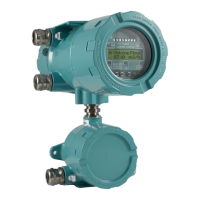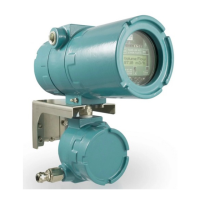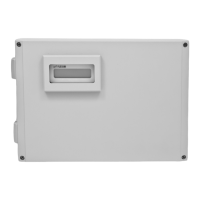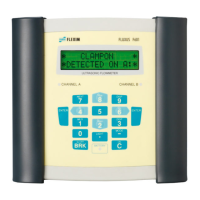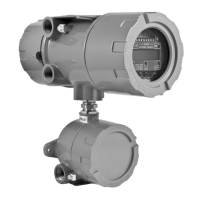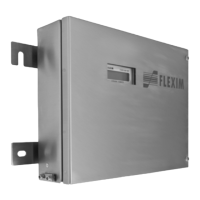UMG70XV3-4EN 12.01.2009 133
14 Libraries
The dependency of certain material properties from the temperature and pressure can be
described
• as constants
• as linear function
• with polynomials of grade 1 to 4
• with customized interpolation functions
Constants or a linear function are sufficient in most cases.
If e.g. the temperature fluctuations at the measuring point are low compared to the tem-
perature dependency of the material properties, the linearization or the complete neglect
of the temperature dependency will not result in a considerable additional measuring er-
ror.
If, however, the process conditions fluctuate strongly and the medium properties depend
strongly on the temperature (e.g. viscosity of hydraulic oil), polynomials or customized in-
terpolation functions should be used. Contact FLEXIM to find the best solution for the
measuring task.
Customized Interpolation Functions
Some dependencies are approximated insufficiently by polynomials. A few customized
interpolation functions BASICS: Y=F(X,Z) are available to interpolate multidimensional
dependencies y = f(T, p). Contact FLEXIM for more information.
14.3.2 Activation of the Extended Library
14.3.3 Input of Material/Medium Properties
The properties of a user defined material/medium can be entered now.
The steps to input a material or a medium are almost identical. Thus, displays for a medi-
um will be shown and described only in case of differences.
Select SPECIAL FUNCTION\SYSTEM SETTINGS\ LIB-
RARIES\EXTENDED LIBRARY. Press ENTER.
Select ON to activate the extended library. Press ENTER.
Select SPECIAL FUNCTION\INSTALL MATERIAL or
INSTALL MEDIUM. Press ENTER.
An error message will be displayed if the coefficient mem-
ory does not contain space for user defined materials/me-
dia.
Partition the coefficient memory (see section 14.1).
Special Function
Install Material
USER MATERIAL
NOT FORMATTED !
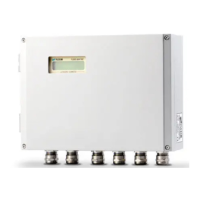
